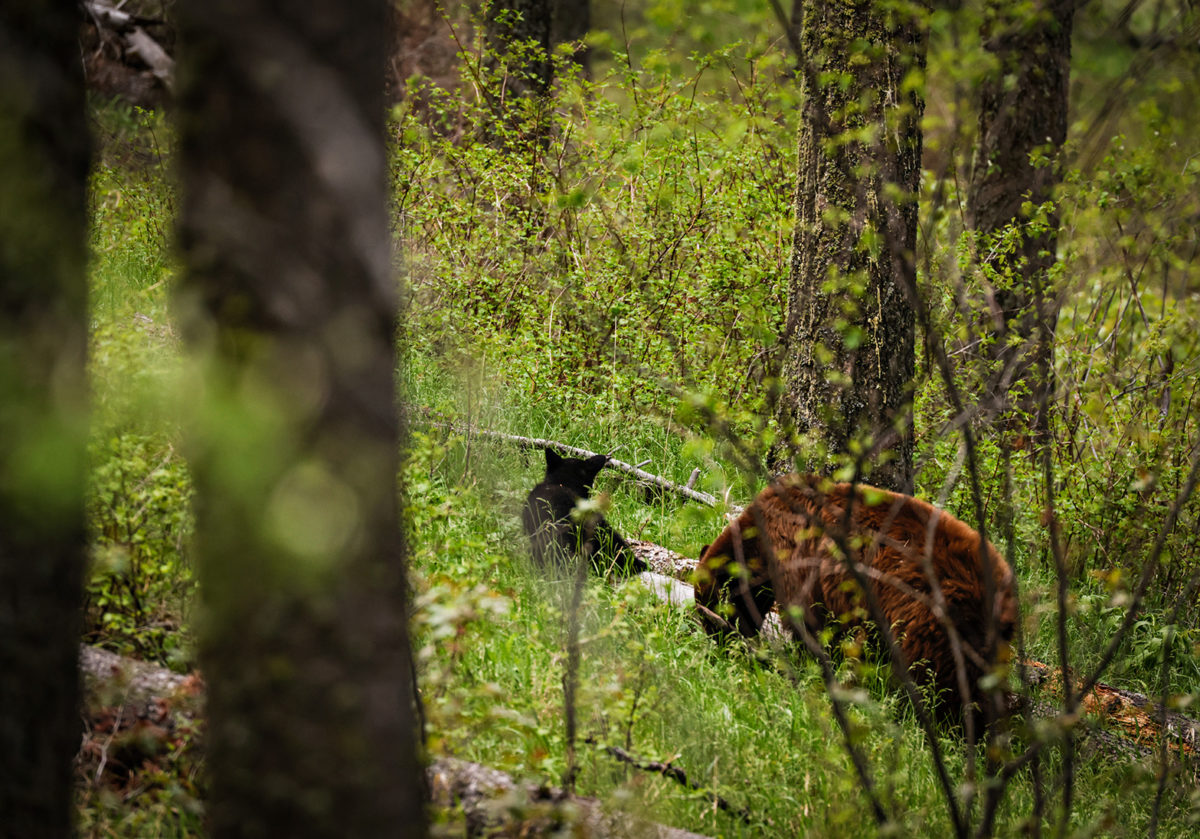Legislative Council Splits Vote on Ballot Initiative to Extend Landowner Hunting Rights
Following intense opposition to a measure that critics say violates tribal sovereignty and treaty rights, the Environmental Quality Council’s 8-8 vote fell short of approval
By Micah Drew
A proposed ballot initiative seeking to more broadly extend landowner hunting rights to private parcels in Montana — even for non-tribal members who own property on reservation lands — would trample the sovereign rights of Indigenous nations, erode a long-established cooperative agreement between the state and tribes and open a floodgate of litigation, according to critics of the measure who testified during a Dec. 6 public hearing.
Despite those objections, which were raised by tribal leaders, conservation advocates and hunting and fishing groups, the Environmental Quality Council’s (EQC) slate of eight Republican lawmakers voted in support of the initiative, known as I-193 or Ballot Issue No. 10. Still, with all four of the EQC’s Democratic lawmakers voting in opposition alongside the committee’s four public members, the 8-8 vote fell short of approval, meaning supporters of the measure to revise the state’s hunting rules must circulate their petition for signatures with language noting the council’s opposition.
For members of Montana’s seven federally recognized Indian reservations who testified Wednesday, the proposal’s objectives are misguided and insulting, in large part because the initiative’s sponsor did not consult with the State-Tribal Relations Committee, which acts as a liaison between tribal governments and the state.
John Harrison, a staff attorney with the Confederated Salish and Kootenai Tribes (CSKT), said the initiative would “torpedo tribal-state relations if [it] goes through” while describing its collateral damage to resource management as extending beyond the reservation’s boundaries.
“There would be a lot of vagaries in this,” Harrison said, noting that it runs counter to the public trust doctrine underpinning the North American Model of Wildlife Conservation.

The proposed initiative was brought forth by Rick Schoening, a former Montana Fish, Wildlife and Parks (FWP) game warden who lives in Polson. The initiative would revise state hunting laws to prohibit the state Fish and Wildlife Commission from restricting a landowner’s ability to hunt deer, elk, and black bears on their own property, including property that falls within the boundaries of an Indian reservation.
“The Montana Constitution guarantees the preservation of harvest heritage,” Schoening told the committee. “Thousands of Montana citizens are having this constitutional right infringed on by the Montana Fish, Wildlife and Parks Commission rule, on their own property. I am just trying to reopen these properties.”
The Hellgate Treaty of 1855, which established the 1,250,000-acre Flathead Indian Reservation as the CSKT’s permanent homeland, provides that hunting and fishing rights are exclusively for tribal members.
As non-tribal members living on the reservation, Schoening and Montana Rep. Joe Read, R-Ronan, who drafted a similar bill during the 2021 legislature that died in committee, spoke about their personal experiences being unable to hunt on their own deeded property. Read also discussed his problems with deer and elk grazing on his farmland.
“I have constantly called tribal Fish and Game asking could they please, please send some hunters to my property because of the predation on my alfalfa fields,” Read said. “Just a small snippet of a solution to this is to allow all property owners to hunt constitutionally on our own private property.”
Currently, Montana’s seven reservations are subject to tribal jurisdiction when it comes to hunting on reservation land. While enrolled tribal members can hunt on their own land, non-enrolled members cannot hunt big game, even on their private property, without special permits to do so. Most of the EQC discussion centered on the Flathead Indian Reservation, where the CSKT allows waterfowl hunting and fishing by non-members on the Flathead Reservation, but not big game.
Patrick Yawakie, of the CSKT’s People’s Food Sovereignty Program, said there are established resources in place for non-tribal landowners, farmers and ranchers on the reservation to request tribal members hunt and harvest problematic bear, deer and elk on their properties.
“It’s unfortunate that this effort has been rejected by a non-Indian resident of the Flathead Indian Reservation who is again using politics to push a bill that attacks tribal treaties and inherent sovereignty rights of the CSKT and all Montana Tribes,” Yawakie said. “This very issue was already decided by longtime Supreme Court Cases … it was ruled that the states do not have authority to regulate hunting within the borders of the reservation on trust lands.”

CSKT Tribal Council Chair Tom McDonald, who is also the former director of the Tribes’ Fish and Wildlife Division, said the ballot initiative would undermine a long-established agreement with the state that allows fishing and bird hunting by non-tribal members, while potentially jeopardizing federal aid for wildlife and fisheries management and research.
“We have over 70 years of precedent here,” McDonald said. “We have a great working relationship with the state of Montana and its fish and wildlife management agency. This initiative in itself jeopardizes all that hard work and all of the great resources in the state.”
Other critics of the initiative said its consequences could spread far beyond reservation lands, creating a path to “privatize and possibly commercialize our wildlife resources,” according to Kathleen Hadley, a Deer Lodge area resident who worried the initiative would lead to wealthy individuals buying up large swaths of land for commercial hunting opportunities.
Kevin Farron, with the Montana Chapter of Backcountry Hunter and Anglers, agreed, saying the text is “so broad that we haven’t even begun to estimate the problems that this will create.”
“Does this include overseas corporations who own land in Montana? Parcels with multiple owners whether they are corporations here in Montana or elsewhere?” Farron asked. “There’s no acreage requirements for the definition of landowners.”
While the text of the initiative states landowners would be required to follow bag and take limits, Farron also pointed out that those are different than quotas, which exist for black bears in many hunting districts.
“There are no considerations for overharvest from hunters,” he said. “Simply put, this is ballot box biology at it’s worse.”
Read, the Ronan lawmaker, defended the initiative as a practical solution.
“My whole goal is not to institute something that’s going to be disharmonious to the state in general, but at the same point in time, I do believe that private property owners’ rights should be treated the same across the whole state,” Read said. “My whole goal is to develop a constitutional right and a Montana constitutional prerogative that the state of Montana does enforce and promote hunting rights.”
The eight Republican members of the committee agreed, framing it as a private property rights issue and revealed no compunctions about supporting it.
“I’ll be a yes. One reason is I’m a big private property guy,” said Sen. Steve Hinebauch, R-Wibaux. “The other reason: I always hate the threat that somebody is going to sue us. Let ‘em sue us.”
Because all five Democratic legislators and the three citizen members of the council voted in opposition, the EQC vote will be recorded as opposing the measure.
“This one really puts the ‘um’ in dumb,” said EQC public member Jim Keane, a former longime Democratic lawmaker from Butte whose term ended in 2023. “It’s so self-serving that it’s unbelievable.”
In order to end up on the ballot next November, Schoening must obtain signatures of at least 5% of voters in at least 34 legislative districts, with a minimum of 30,180 signatures.